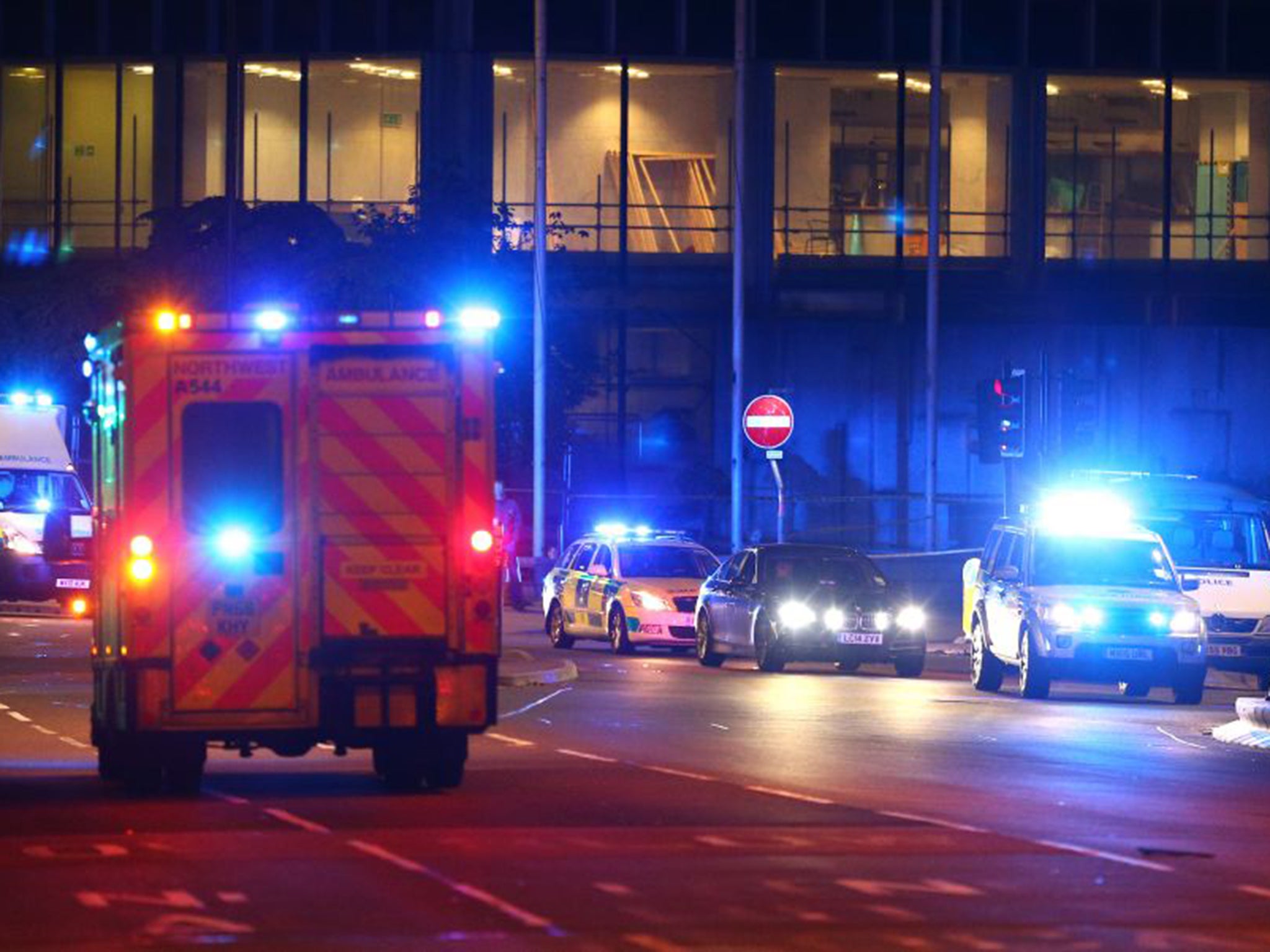Manchester attack victims' call for law forcing venues to increase security considered by government
Home Office U-turn as mother of bombing victim and terror survivors demand change

New laws to force large venues to increase security measures in the wake of the Manchester Arena bombing are being considered by the government.
The Home Office said it was looking at “whether and how further legislation” could increase the use of safety checks, such as bag searches and body scanners.
The mother of Martyn Hett, who was killed in the Manchester attack, has headed a long-running campaign for a law to force the change.
Figen Murray was to join other victims of terror attacks to launch a fresh campaign on Wednesday.
“We don’t want any other family to go through what we have when so many of these attacks could be prevented or their impact reduced,” she said.
“It cannot be right that venues are held legally responsible for how many toilets they have, but not for basic security measures that could prevent a terror attack.
“I named this campaign Martyn's Law but passing it would be a tribute to all those who died in Manchester and beyond.”
The government initially said there were “no plans to mandate specific security measures” in response to a petition signed by more than 23,000 people demanding obligatory checks at large venues.
But it has now indicated that Martyn’s Law, which is also supported by the Survivors Against Terror group, will be formally considered.
Ben Wallace, the security minister, said concerts, shopping centres and sporting events should be “enjoyed without fear”.
“Just as we share enjoyment of these communal places and spaces so we need to share concern and responsibility for keeping them as safe as possible,” he added. “That means owners, operators and public authorities stepping up and making full use of the wide range of information and advice available to support them.
“The government is also considering whether and how further legislation could support, or indeed compel, effective and proportionate protective security.
“We would very much welcome input in from Ms Murray and others campaigning for Martyn’s Law in this work and I look forward to discussing it with her soon.”
The campaign is being supported by Manchester mayor Andy Burnham, who was to appear with Ms Murray and other supporters of the law on Wednesday.
Former chief superintendent Nick Aldworth, who led the “protect and prepare” strand of national counterterror policing until his retirement last month, said senior officers had been pushing government ministers to create a new legal duty.
“Ministers mustn’t delay action on this any further,” he added. “Unless we get better at sharing that responsibility more people may be murdered or harmed by terrorists.
“In other areas of policy we already do this. For example when it comes to preventing fire we know it’s not just a job for fire fighters - we expect the law to play its part from planning legislation to mandatory fire escapes and drills. It’s time we take the same approach to terrorism.”
There is currently no law compelling venues to implement counterterrorism measures beyond standard health and safety legislation, although guidance and training is provided by a national network of specialist police security advisers.
The national Contest counterterror strategy includes security in crowded places and police review arrangements for specific events.
The new law would require the owners of public spaces and venues to take counterterrorism advice, conduct vulnerability assessments and put a plan in place to mitigate any vulnerabilities.
Isis supporter Salman Abedi was able to enter Manchester Arena’s foyer carrying a bomb packed with metal shrapnel without any checks.
He detonated the device as young fans poured out of an Ariana Grande concert on 22 May 2017, killing himself and 22 victims.
The potential impact of the lack of protective security will be examined by upcoming victims into their deaths.
Former police inspector Andrea Bradbury, who was injured by the Manchester bombing, said that although not every plot can be stopped the public expect “basic security procedures”.
“It will come as a shock to many that this legislation doesn’t already exist,” she added. “We urgently need new legislation to put in place proportionate but effective security measures.”
Brendan Cox, co-founder of Survivors Against Terror and the husband of murdered MP Jo Cox, said the law is supported by dozens of attack survivors, senior law enforcement officials and local mayors.
“Government has rightly moved to bolster security for MPs, now it’s time they took similar steps for the wider public by passing this law,” he added.
Subscribe to Independent Premium to bookmark this article
Want to bookmark your favourite articles and stories to read or reference later? Start your Independent Premium subscription today.

Join our commenting forum
Join thought-provoking conversations, follow other Independent readers and see their replies